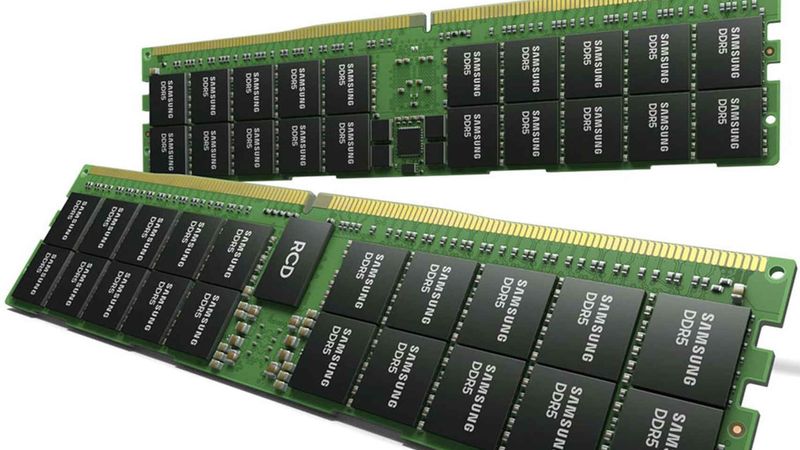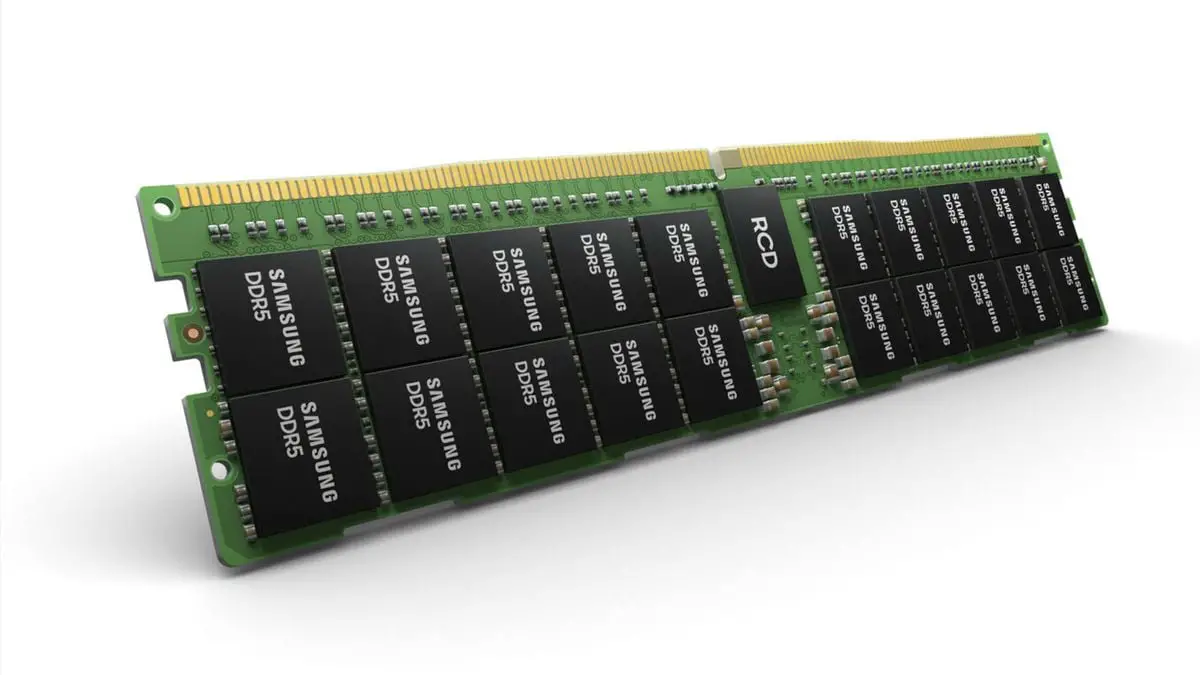Samsung has demonstrated the potential of DDR5 memory, the new standard that will enable speeds twice as fast as the currently used DDR4.
Most new computers sold worldwide use DDR4 RAM, which in its day was a major leap forward compared to past generations; However, in the last decade development has stagnated, partly because the benefit of increasing RAM speed was minimal with most processors.
That has changed with the release of new processors with higher core counts. AMD’s Ryzen was the first to demonstrate significant improvements as we increased RAM speed, and Intel joined in with its latest processor models.
That has encouraged the development of DDR5, and it is already known that Intel’s and AMD’s next platforms, Alder Lake and Zen 4 respectively, will support the new standard; And now, Samsung has demonstrated what is possible.
Samsung DDR5 memory specs
Samsung this week unveiled the first DDR5 RAM module with a capacity of 512GB. No, we didn’t get the number wrong. Although today it is recommended to install 16GB of RAM, and there are many new computers with only 8GB, Samsung has achieved 32 times the capacity with just one module; It didn’t even need two.

To do this, this module has 32 sets of 16GB each, something that reveals many problems with current technology; That is why Samsung has opted to use new materials, replacing the insulating layer with a material called HKMG (high κ material), which is normally used in semiconductors.
Samsung’s achievement in using this material to reduce leakage is to achieve higher performance while reducing consumption by 13%.
Twice as fast
Although Samsung has not given all the figures, it claims that this module is twice as fast as current DDR4s, by being more efficient with power consumption. We are talking about speeds of 7,200 megabits per second, an absurd speed by today’s standards and one that will be especially useful in environments requiring high bandwidth.
However, don’t expect to mount this module on your computer any time soon. For starters, as mentioned above, current computers are not compatible, and Alder Lake and Zen 4 are not expected until the end of the year, or early 2022; And naturally, prices will be high initially.
But the main reason is that Samsung wants to sell these modules to companies for servers and data centers, which will take more advantage of them; Not only will they be able to compute more data and more quickly, but the reduction in consumption will translate into lower cost. Nevertheless, this module is a good preview of what is to come in the computer sector.





